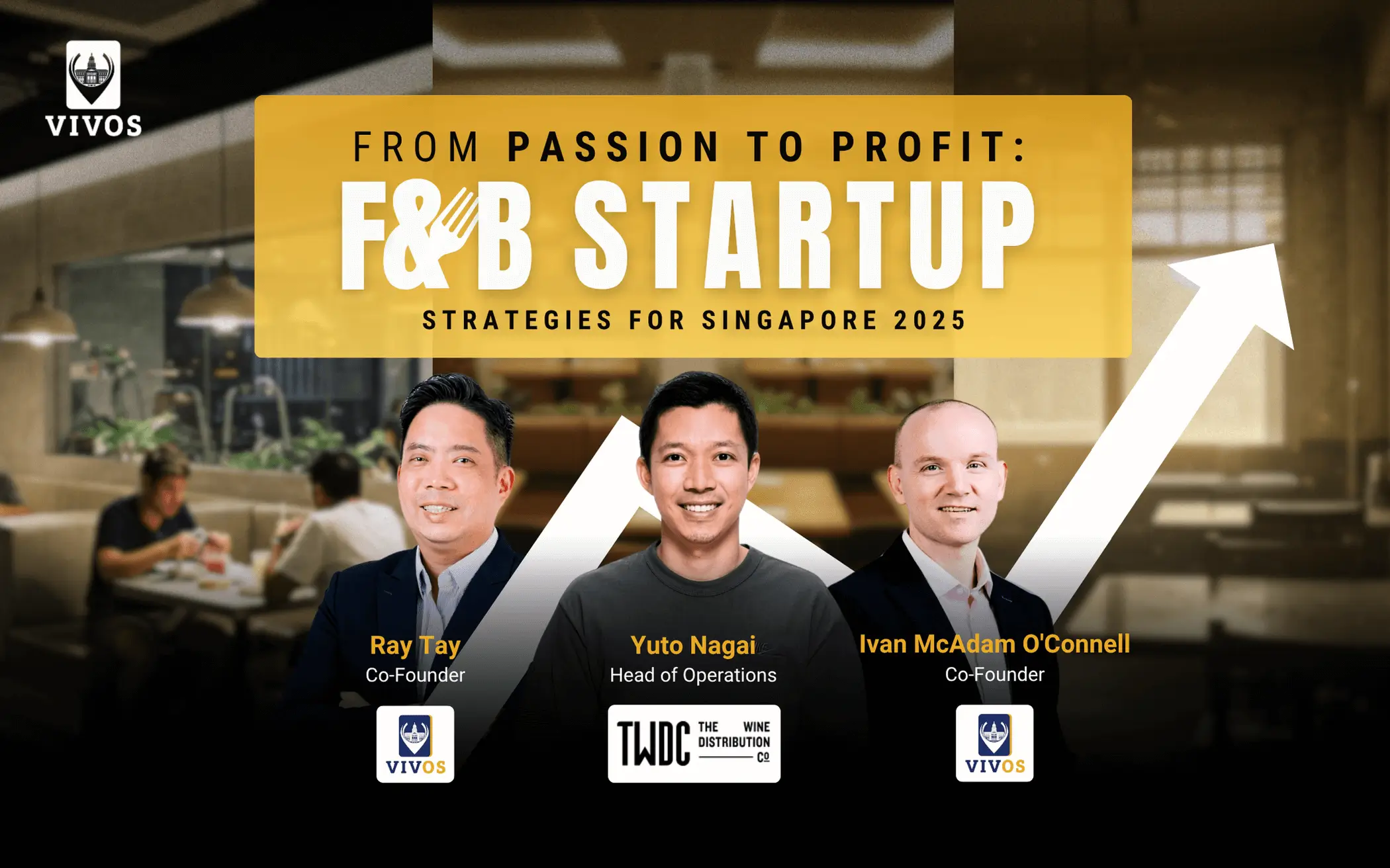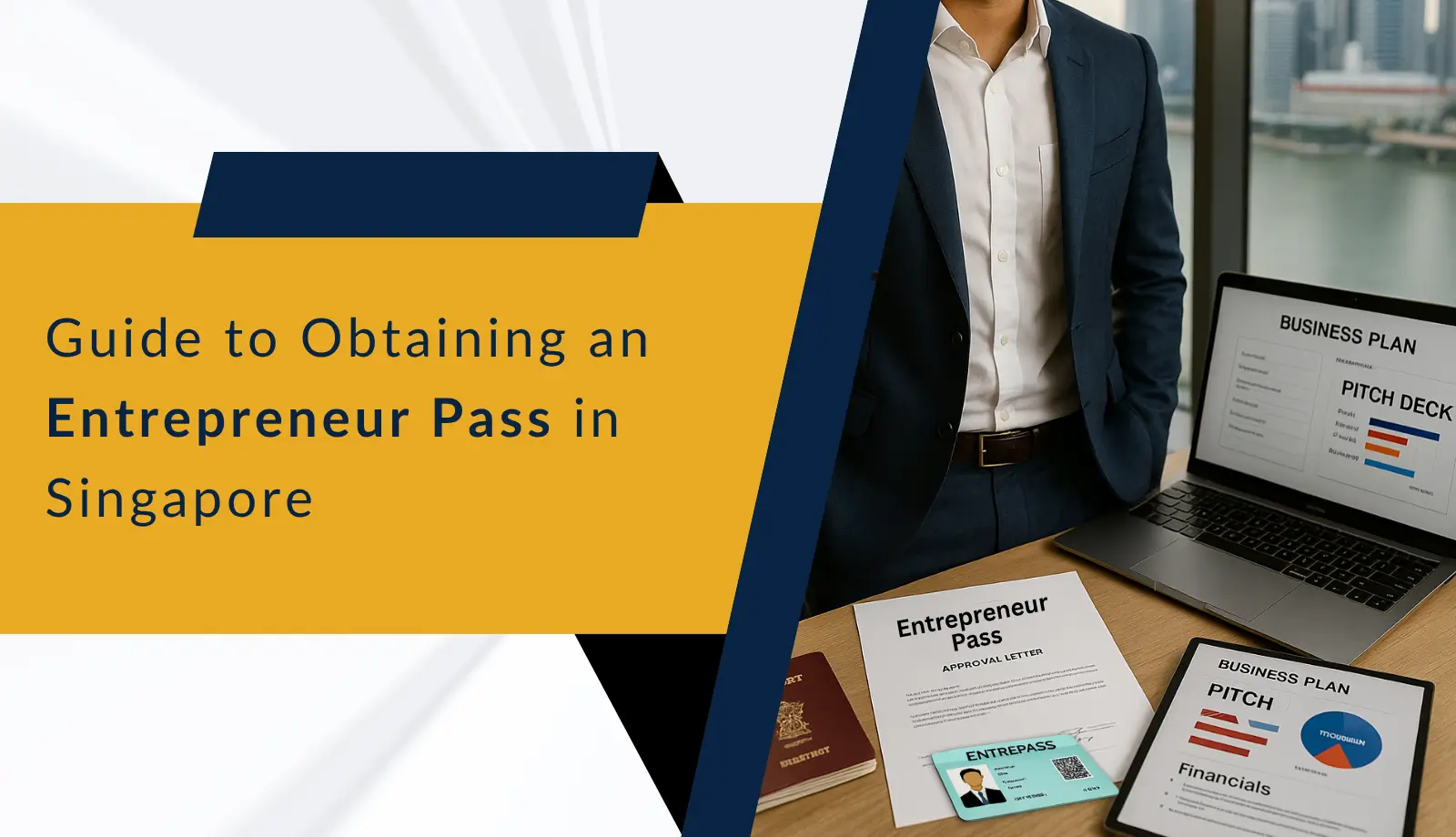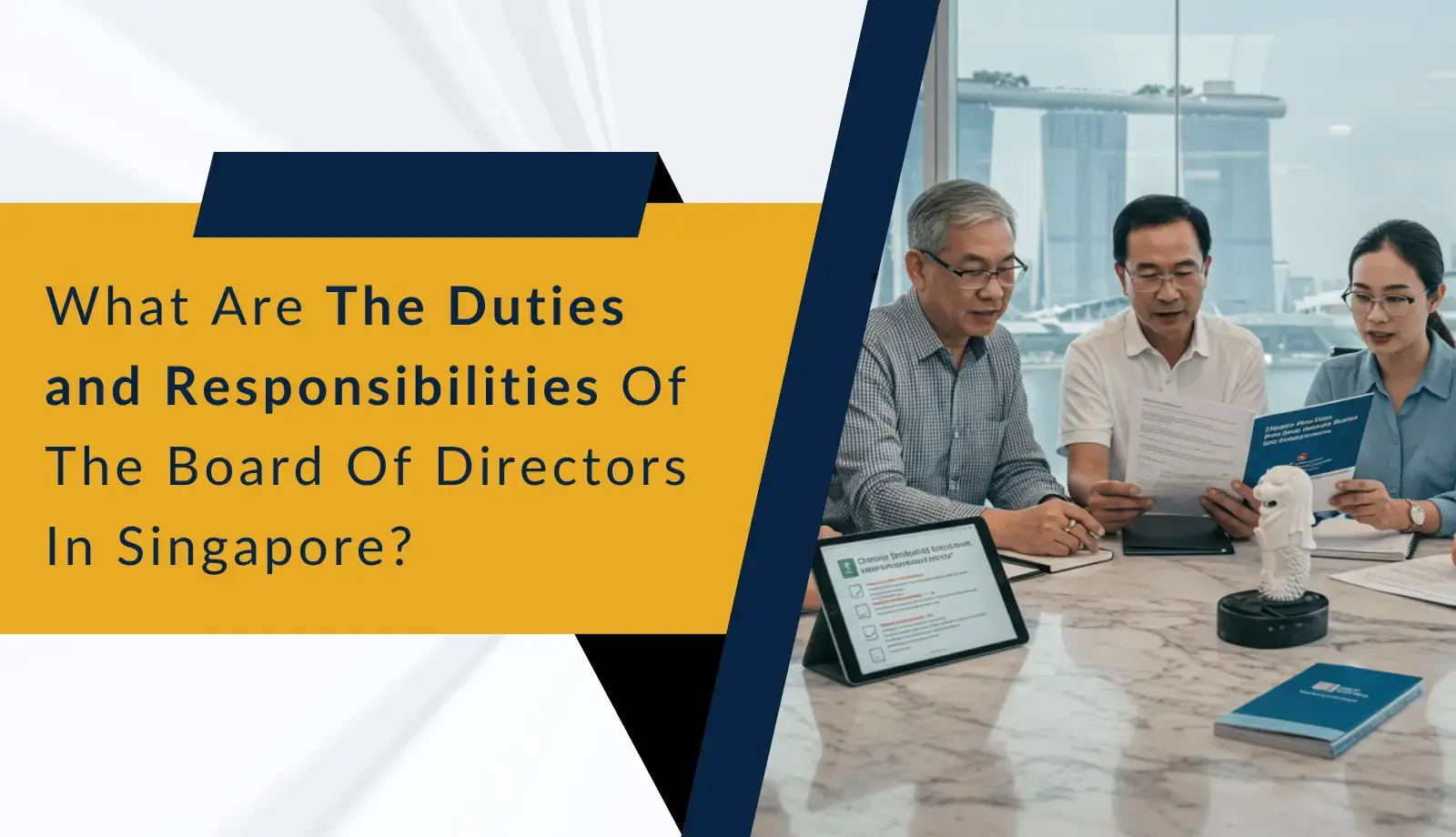新加坡创业准证申请指南
roger
In a world where borders blur and innovation knows no zip code, Singapore has emerged as a launchpad for global entrepreneurs. If you’re building an…

In Singapore, a nation known for its vibrant food culture, it’s easy to get influenced by the idea of opening your own café, bistro, or specialty restaurant. For many, the thought of turning a culinary passion into a livelihood feels like a natural next step.
But turning that dream into a sustainable, revenue-generating business? That’s an entirely different recipe.
In the highly competitive F&B landscape, where operational costs are high and margins razor-thin, a great idea and love for food simply aren’t enough. The dream may start with passion, but profitability requires planning, systems, and strategy.
This blog unpacks a recent roundtable conversation featuring industry veterans Ivan McAdam O’Connell and Ray Tay, founders of corporate consultancy firm VIVOS, along with seasoned F&B operator Yuto, who brings over a decade of experience across restaurant formats in Singapore.
The data is sobering. In 2024, Singapore saw over 3,000 F&B business closures, marking the highest rate in two decades. And 2025 is on track to surpass that number, with monthly closures averaging 307, up from 230–254 in earlier years.
The reasons? Rising costs, intense competition, and a saturated market.
Ray, co-founder of VIVOS, stated it clearly, reminding us that jumping from a stable career into hospitality without solid planning is a common misstep.
“Don’t go open a café after your banking career—you’ll lose all your money.”
Many professionals, driven by a love for food or a desire to own something tangible, underestimate how operationally demanding and financially volatile the restaurant business can be. Emotional investment often clouds judgment, leading to poor decisions in hiring, scaling, and pricing.
Running a restaurant in Singapore isn’t just about curating a menu or designing a hip space. As the roundtable guests discussed, operational realities quickly catch up:
Yuto, a seasoned F&B operations manager with over a decade of experience in managing restaurants across Singapore (including sushi, Italian, and wine distribution outlets), shared how his team overhired during a post-pandemic boom. When revenue dipped, cutting costs proved challenging because salary expectations had already been raised.
Despite the hurdles, many businesses are thriving. Not just passion, but excellent execution is what makes a difference.
Here’s what’s working, according to the experts:
Ray noted the growing use of central kitchens, even by hawker chains. These reduce costs and improve consistency.
QR ordering systems can reduce front-of-house staffing needs. While not suitable for fine dining, they’re a lifesaver for fast casual brands.
Yuto’s sushi restaurant, despite rising costs, chose not to raise prices, opting to increase customer traffic through strong value propositions.
Instead of trying to squeeze profits by expanding their menus or locations, successful brands concentrate on doing a small number of things exceptionally well.
These aren’t just theoretical solutions; they reflect proven results in a challenging economy.
Absolutely—but only with a shift in mindset.
The key message from Ivan and Ray is that passion must be paired with rational thinking. Ideas should be tested, market-validated, and tailored to location and audience.
Yuto recounted an example of a bakery proposal: a passionate entrepreneur wanted to open a boutique bakery with $200,000 in capital. But the math didn’t add up. The daily maximum revenue would barely cover rent and staff, making sustainability unlikely unless she dramatically revised her concept.
Understanding your break-even point is the key takeaway. Understand your pricing strategy and test before you invest.
This is where professional guidance becomes critical.
Founded by Ivan and Ray, VIVOS is a Singapore-based corporate consultancy that has advised numerous F&B brands—both homegrown startups and overseas entrants—on market strategy, compliance, and scale.
VIVOS goes beyond numbers, diving deep into business models, location strategy, and team structure. From setup to scaling and exit, they guide F&B founders toward sustainable growth.
As Ray Tay, co-founder of VIVOS, puts it, “Why hire a costly GM when you can get sharp, strategic advice for less?”
Growth is exciting but dangerous when premature.
One café brand Yuto worked with expanded rapidly, opening one outlet per year without refining backend systems. Logistics lagged, quality dipped, and the brand struggled to support HQ costs without consistent unit profitability.
Key advice for scaling:
Too few F&B owners plan for the end. And by the time they need to sell, their business is often distressed—weakening their negotiation power.
Ray explained:
“Buyers don’t care about your sweat and tears. They care about brand value, margins, and staff retention.”
Selling a restaurant, especially one that’s profitable, can take 6 to 12 months. Planning ahead is essential.
That means
When you approach a sale from strength, not desperation—you protect your valuation.
Is the F&B Dream Still Worth It? Yes. But not for everyone.
The F&B industry in Singapore is filled with possibility, but only for those who blend creativity with discipline. Passion may draw you in, but process and professionalism will keep you afloat.
Ray, Ivan, and Yuto all shared one final truth: the dream works, but only when powered by process, preparation, and perseverance.
Be it a sourdough dream or a new chapter after the corporate grind, success starts with the right guidance.
VIVOS guides founders through every critical phase, from entity formation and licensing to performance tracking, scale, and eventual exit. Their involvement in the recent Providore deal, advising on the successful founder transition and acquisition, demonstrates their ability to help brands not just survive, but scale, sell, and grow with clarity.
Because in F&B, it’s not just about starting—it’s about building something that lasts.


Let VIVOS help you make the leap from dreamer to doer—with clarity and confidence.
餐饮初创企业通常面临哪些常见挑战?
企业家常常面临高昂的租金和人力成本、复杂的法规、运营效率低下以及激烈的竞争——其中50%的企业在四年内倒闭。
如何为我的餐厅选择合适的地点?
观察人流量、目标受众人口统计数据、租金水平以及竞争情况。谈判灵活的租赁条款至关重要,尤其是在许可证审批尚未完成时。
什么时候是考虑退出的合适时机?
尽早开始规划——理想情况下,远在危机发生之前。买家重视品牌资产、一致的绩效指标和明确的角色分工。出售过程可能需要6至12个月,因此提前准备能保障价值。
我应该维护哪些文档以确保运营顺畅?
保持以下记录的清晰:
如何选择合适的地点?
高客流量有帮助,但客户人口统计、竞争密度、租金水平和租赁条款也很重要。分析附近的企业,并将它们与您的概念相匹配。
In a world where borders blur and innovation knows no zip code, Singapore has emerged as a launchpad for global entrepreneurs. If you’re building an…
Singapore has cemented its reputation as a dynamic global business hub due to its attractive economic prospects, political stability, and modern amenities, continually striving to…
In Singapore, company directors are entrusted with significant responsibilities that ensure the smooth operation, compliance, and governance of their business. As the ultimate decision-makers, directors…

Incorporated in Singapore under the Companies Act 1967 UEN 202416468C | ACRA Registered Filing Agent FA20240323 | MOM Employment Agency Licence 24S242







